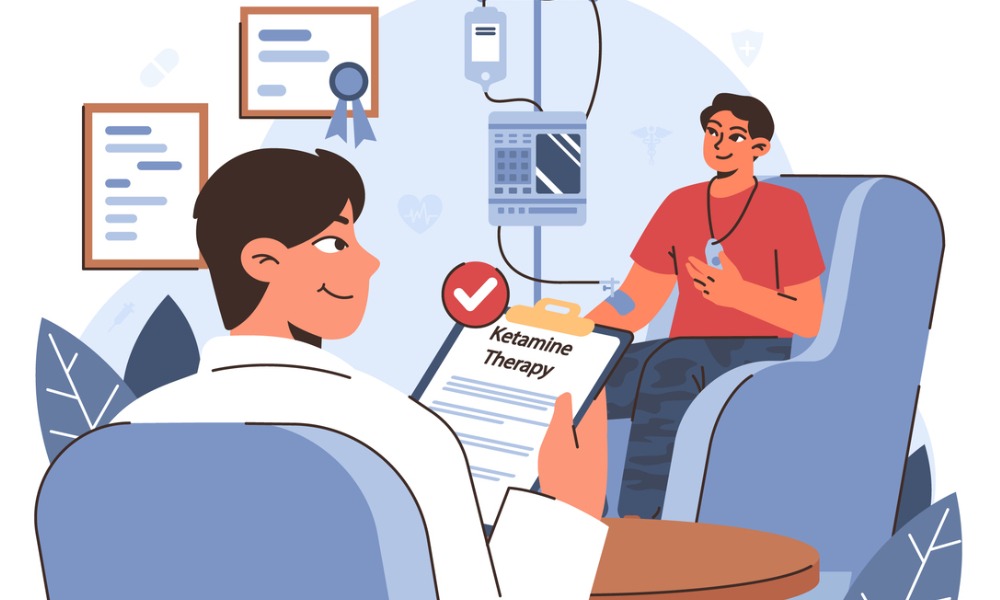
'The results speak for themselves and demonstrate the unique effectiveness of ketamine-assisted therapy'

Could ketamine be the next big employee perk? One U.S. employer is convinced it’s a good move, having decided to offer ketamine-assisted therapy (KAT) to employees.
Like many companies, Dr. Bronner’s Magic Soap saw the depth of mental health challenges faced by many during the pandemic, so the new benefit made sense, according to its president.
“Our family and company are no strangers to depression and anxiety,” said Michael Bronner. “We are deeply concerned about the mental health crisis society is facing, especially in the context of the Covid-19 pandemic.”
According to data from the CDC, depression alone accounts for 200 million lost days of work every year – costing employers upwards of $44 billion.
Ketamine is sometimes used to treat depression and anxiety, and as a survivor of childhood abuse, Liz, an employee at Dr. Bonners, says the drug has been very helpful.
“When the sessions were over, I felt tired but incredible. Like I was just given a massage to my soul,” Liz wrote in a blog post. “The dissociative effects of Ketamine allowed me to disconnect myself from my trauma to feel the real me inside…and I was able to assess the abuse, my abusers, and myself from an entirely different perspective.”
According to data from benefits provider Enthea, partner to Dr Bronner’s:
“The results speak for themselves and demonstrate the unique effectiveness of ketamine-assisted therapy,” adds Dan Rome, Chief Medical Officer of Enthea. "Psychedelic therapy's potential stems from its distinctive mechanism of action in the brain. It fosters increased neural plasticity and heightened connectivity between brain regions which leads to a profound shift in consciousness and perception, fostering introspection, personal insight, and, ultimately, psychological healing."
According to the National Institute of Mental Health, 20% of US citizens are suffering from a mental health condition – with 16% of them already taking psychiatric medication to help alleviate the symptoms – making alternative treatments as a standard option in general benefits plans all the more viable in the near future.
The company’s proposal to adopt psychedelic therapy wasn’t readily embraced by everyone, according to the Enthea blog. Trudy Bronner – CFO of Dr. Bronner’s and mother of Michael as well as CEO David Bronner — remembers the excesses of the 1960s.
“I had friends who did the trippy stuff and it wasn’t always good,” she said. “On the other hand, this country has a lot of mental health issues that need to be addressed.”
But Michael’s success with psychedelics eased her concerns.
“I don’t want to oversell ketamine therapy as a miracle cure but it just stripped the rust away, gave me a reset and got me to a really good space,” he said.
“We really are at an inflection point where the whole paradigm about these drugs is shifting,” said Dacher Keltner, a professor of psychology at the University of California, Berkeley, who is helping to set up the school’s new Center for the Science of Psychedelics.